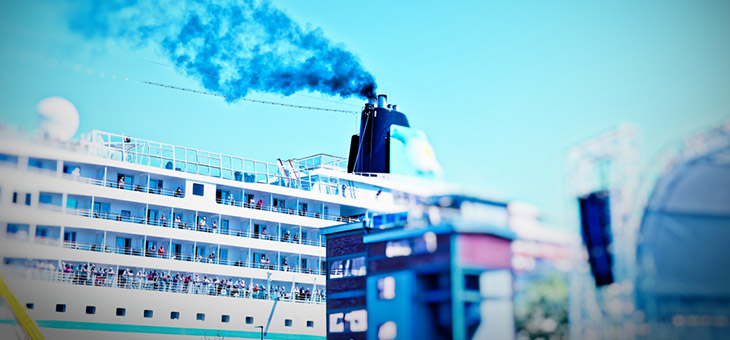Tough new environmental laws on cruise ship fuel expected to pass in early 2020 will mean the price of cruising will increase significantly.
The new laws will mean that all vessels operating anywhere in the world will have to use fuel which contains a maximum of 0.5 per cent sulphur.
Heavy fuel oil contains up to 3.5 per cent sulphur in some areas, including Australia. Europe is already on the front foot, adopting a lower ceiling of 1.5 per cent, which is already being policed and enforced.
As reported by Cruise Passenger, just last week, a US cruise ship captain was charged for polluting French waters after a random check found that his ship, Azura, was burning fuel with 1.68 per cent sulphur, just 0.18 per cent above the 1.5 per cent limit.
The process involved in refining fuel to come under the new sulphur levels is long and expensive, costing up to 50 per cent more to produce.
As the 0.5 sulphur ceiling is new for everyone, no one is yet quite sure how much extra the cost will be, or whether cruise lines will absorb them or pass them on to passengers.
In the past, crude oil price hikes were passed on to passengers to the tune of around $130 per cruise, so it’s reasonable to assume that so too will these new costs.
Cruise lines have adopted environmentally friendly travel approaches to heart, taking on board the push for greener, more responsible cruising. They’ve done this by banning plastics on board, introducing funnel scrubbers (smokestack filters), and helping communities near popular cruise ports and shore excursion areas.
And with cruising becoming more popular each year, demand will no doubt also increase, so no one really knows how the new laws will affect prices.
The burning of high-sulphur fuels creates emissions linked with a range of health problems such as asthma, heart disease and cancer, and can also generate acid rain that acidifies our waterways, which, in turn, threatens biodiversity.
While many cruise lines have engineered ships to reduce emissions, some are quite old and will still need to rely on bunker fuels. Cruise Lines International Association (CLIA) has teamed up with environmental organisations to call for a total ban on non-compliant marine fuels unless vessels have equipment that remove pollution, such as funnel scrubbers, which can reduce sulphur oxide emissions by as much as 98 per cent.
The world’s first cruise ship fully powered by liquefied natural gas (LNG), AIDAnova, will be making her inaugural voyage in December this year. AIDAnova will be keenly watched by cruise lines that have pondered using LNG to power their cruise ships.
Carnival Corporation will launch seven fully LNG-powered ships by 2022, and at least 25 LNG-powered cruise ships from a range of cruise lines are also currently under construction.
It’s a drop in the ocean considering 112 ships are currently being built, but it is a good start.
While passengers may end up bearing the brunt of extra costs associated with refining fuel, the environment will surely benefit. But if you’ve ever wanted to go on a cruise, now is the time to book!
Will you now book a cruise earlier rather than later to get ahead of the price rise?
Related articles:
Watch cruise ship secrets
Sneaky tips for cruise ships
Don’t book these cruise ship cabins

